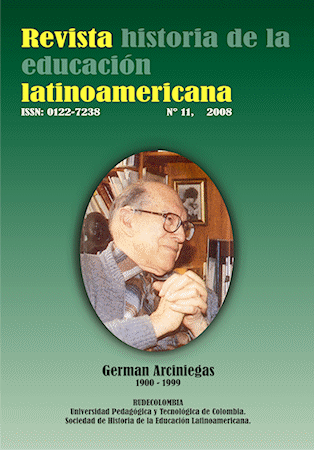UNIVERSITY, SOCIETY, PRESS AND POLITICS RELATIONSHIP IN THE STUDENT MOVEMENTS OF THE 40s IN THE UNIVERSITY OF CARTAGENA

Abstract
Student’s movement, press and politics have shown a constant in Colombia through the university’s history. The access to press began as a privilege used as media of publicity which gave the student´s movement representation and leadership in the fight for its ideals. The movement of the forties at the Universidad de Cartagena is not an exception. It was due to this means of communication that its acknowledgement was given and even if it didn’t permit the academic demands, it was interested in becoming part of the political fight of those times. Left-wingers started to arise in Colombian universities and the conservative opposition became more dominant.
Keywords
Press, protests, pro liberal movement, federations, open cathedra, communism, democratic ideas, fascistic governments.
Author Biography
Dora Piñeres De La Ossa
Doctora en Ciencias de la Educación RUDECOLOMBIA, Profesora Titular de laUniversidad de Cartagena, Directora Grupo de Investigaciones Universidad- Educación Sociedad, Grupo A de Colciencias 2006. Investigadora sobre la Historia de la Universidad de Cartagena, Directora Cátedra Institucional Universidad deCartagena, Coordinadora Académica Maestría Educación SUE Caribe.